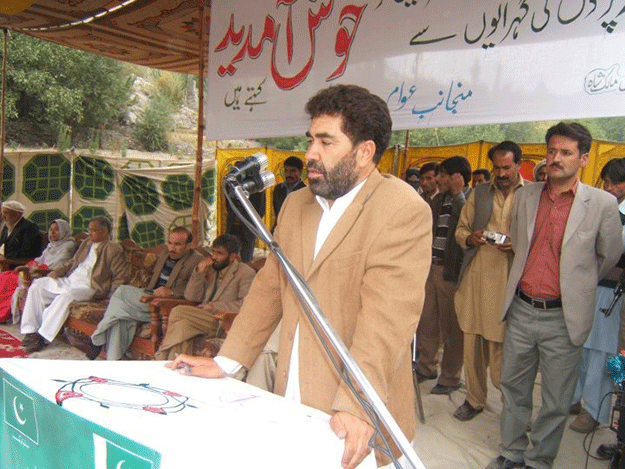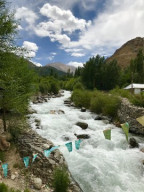
“On the basis of my 20 years experience with China from G-B, I can see a bleak future for G-B economic activities through this much touted corridor project”, he told The Express Tribune in Islamabad on Thursday.
Mirza, a PTI leader who is considered a leading importer and exporter to China, stated that there will not be any dry port in the G-B area and the existing Sust dry port seems to be redundant once the direct train service starts as the Chinese have planned to establish corridor in their own side.
It seems, he said, the G-B territory will only be used for railways tunnels and all the goods would be uploaded directly in China and then reach Havelian, adding that it would also end even the existing economic activities in G-B due to the Karakoram Highway (KKH).
The ex-minister said according to the corridor feasibility report there are no trade zones in G-B which the region deserves as much as does Gwadar.
“This will be an economic disaster for the people of G-B because most of our youth are engaged in the Sust dry port, with transport and hotel businesses as well as labourers, and all these will come to an end if goods were transported through rapid train service,” he maintained.
Mirza added that in the presence of a fast track train service, there will not be any motorway or expansion of the KKH because most of the businessmen will use train service for transporting their goods due to comparatively cheap fare.
“Whatever we have gained due to the Karakoram Highway, it will be snatched by the corridor”, he claimed.
Published in The Express Tribune, April 24th, 2015.








1730886375-0/Untitled-design-(46)1730886375-0-270x192.webp)








COMMENTS (2)
Comments are moderated and generally will be posted if they are on-topic and not abusive.
For more information, please see our Comments FAQ